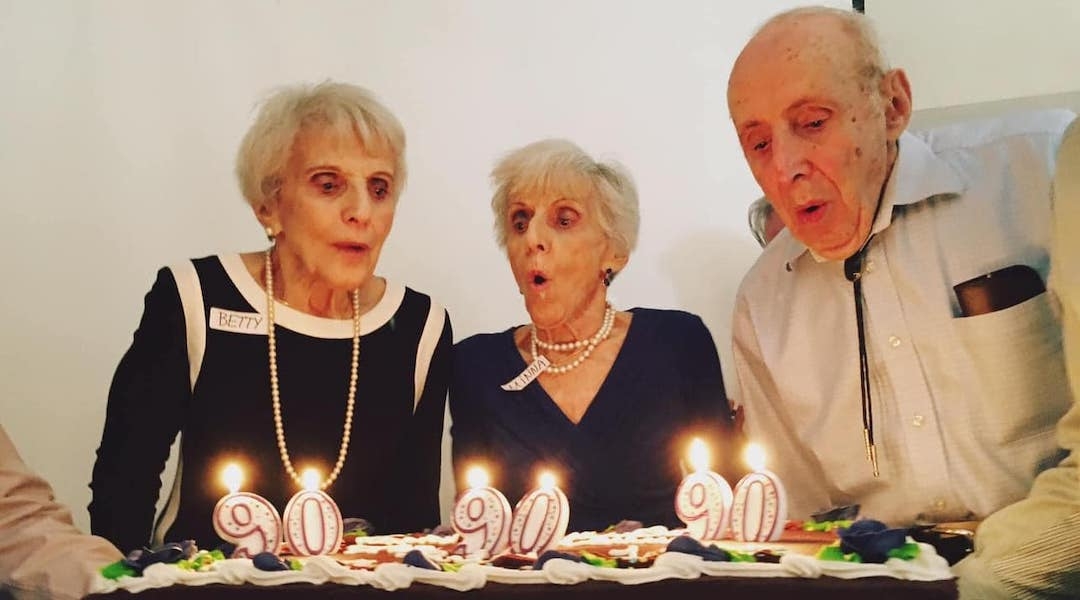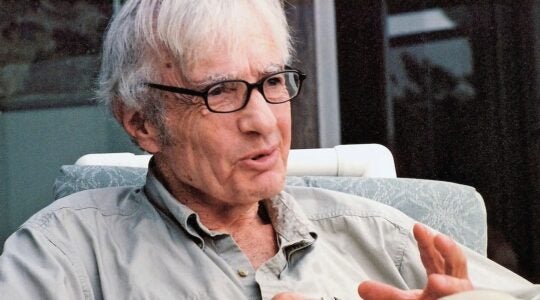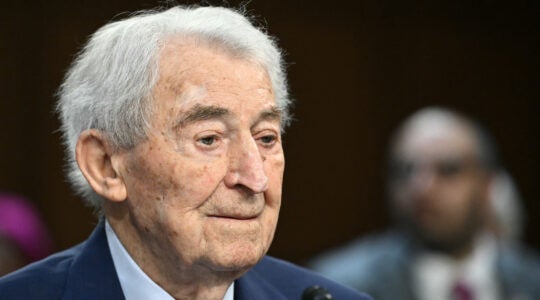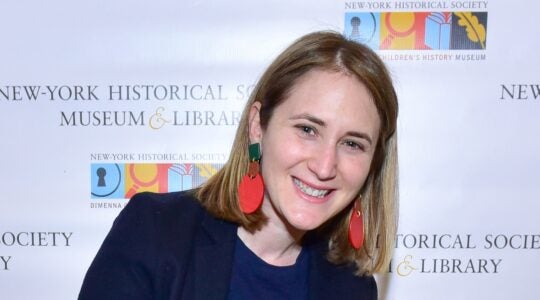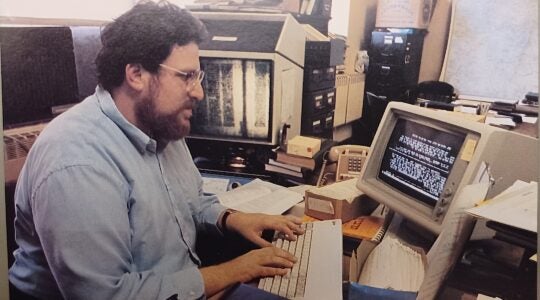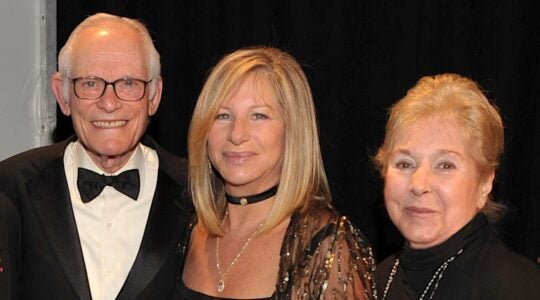(JTA) — “900 Rockaway Babies to Parade Tomorrow” read a small item in The New York Times on Sept. 2, 1927. They would include, according to the article, 6-month-old Betty, Joseph and Minna Hocky, triplets from the Edgemere section of Queens who would go on to win the annual pageant.
Ninety-three years later, in 2020, the Jewish siblings were still making news, when they were named by Guinness World Records as the oldest living (mixed-sex) triplets.
On June 10, the last surviving triplet, Betty Hocky Woolf, died at 96. The former elementary school teacher had retired to Southern California, where she led a chapter of ORT, the Jewish educational network, and helped found the Jewish Collaborative of San Diego, a nondenominational synagogue community.
“Betty Woolf z’l has been the heart and light of JCo from the day we opened our doors nine years ago,” Jewish Collaborative said on Instagram after her death. “Members of all ages felt her unconditional love and we promise to make her name and memory a blessing as we continue to spread that love.”
“My grandmother was smart, sharp as a whip, beautiful, and one of the most fashionable [women] I knew,” wrote Rachel Woolf, a flute professor at the University of Texas at San Antonio, in an Instagram tribute. “She was a triplet, an amazing wife, incredible mother of three, and an incredible grandmother and great-grandmother. She taught me how to knit, and generously gave me her Hyundai Elantra a few years back. She taught me what it means to age gracefully with vitality, style, and grace.”
Betty, her brother and sister were born on Feb. 27, 1927. Their mother Belle, was the daughter of Jewish immigrants from Austria, near the border with Poland, who lived on Manhattan’s east side. She met their father, Dave, when both worked at Rittenberg’s, then the largest textile house in the city. In a family history, Belle said of her pregnancy that she had “no inkling at all that they were triplets, except that I was very big.” The family moved from Manhattan to a two-family house in Edgemere when the triplets were three months old.
Betty would live with her husband Milt in several places, including Cherry Hill, New Jersey. Joseph, who lived outside Philadelphia, died in January at the age of 95. Minna, who lived in Silver Spring, Maryland, died in August 2021 at the age of 94. The three also had an older sister, Addie Gabel, who died in 2013.
All three enjoyed their celebrity as nonagenarian triplets, according to the San Diego Union-Tribune, appearing on TV and in newspapers when they turned 90 and again when Guinness announced their record.
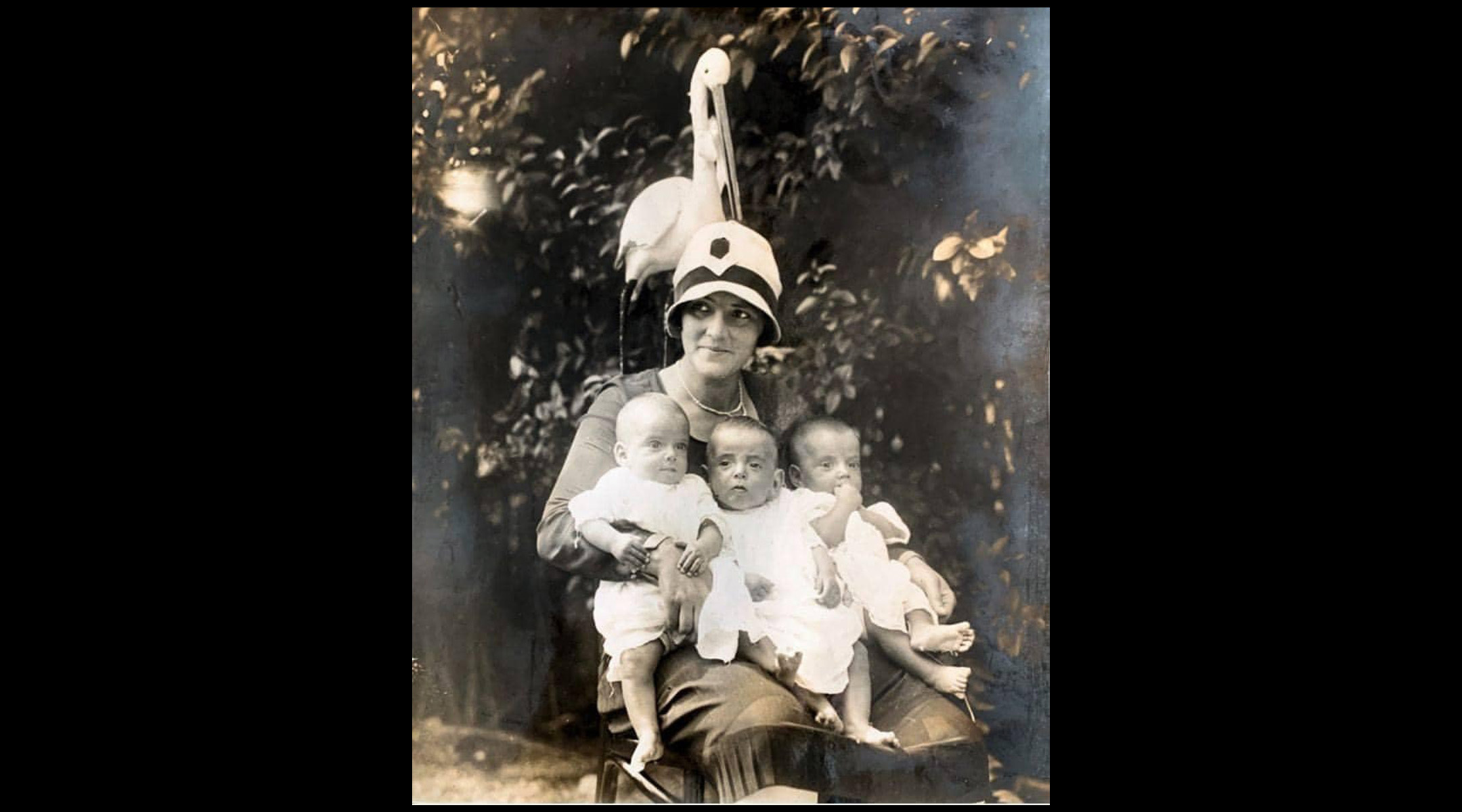
The Hocky triplets were born Feb. 27, 1927. Their parents lived in the Edgemere section of Queens, New York. (Courtesy Jason Paladino)
“My daughter had tried [to claim the record] when I was 90, but there were people older than us,” Betty Woolf told the newspaper in 2020. Her daughter Nancy tried again later and Guinness confirmed the record.
“My friends would say, ‘I don’t know anyone in the Guinness Book of Records,’” Woolf told the newspaper. “I’d tell them, ‘Now you do.’”
A family obituary also noted Woolf’s “outgoing personality, her style, her ability as a poet, her culinary skills, and her willingness to organize whatever needed to be done.” A lover of games, including bridge and mahjong, she appeared on the television game shows “Concentration” and “Jeopardy!” in the 1960s, winning money and prizes on both.
Woolf is survived by her husband; three children and their spouses; eight grandchildren and 10 great-grandchildren.
At her funeral on Monday, many members of the family turned up wearing Woolf’s jewelry and clothing, which she had given away over the previous decade.
“It was as if everyone knew she would have wanted it that way. (She totally would have!)” Rebecca Woolf, another granddaughter who is a memoirist, wrote on Instagram. “And so. Everywhere we looked, there she was. The very personification of her memory blessing each and every one of us.”
Rachel Woolf played a flute piece at the funeral while wearing her grandmother’s red jacket, Rebecca Woolf wrote. The night Betty Woolf died, Rachel dedicated a performance of Gustav Mahler’s Symphony No. 1 at the Victoria Bach Festival in Victoria, Texas, in her memory. She noted the “stunning klezmer funeral-march oboe duet” in the symphony’s Third Movement, as well as the fact that it is interrupted by “an upbeat marching band, showing the beauty, complexity, and dichotomy of life.”
She had discussed the performance in advance with her grandmother.
“I was able to share with her about my performance of Mahler 1 earlier in the day, and I told her I would be thinking of her during every note I played that evening,” wrote Rachel Woolf. “I dedicated my performance to her as she lived her final few hours of life.”
JTA has documented Jewish history in real-time for over a century. Keep our journalism strong by joining us in supporting independent, award-winning reporting.
